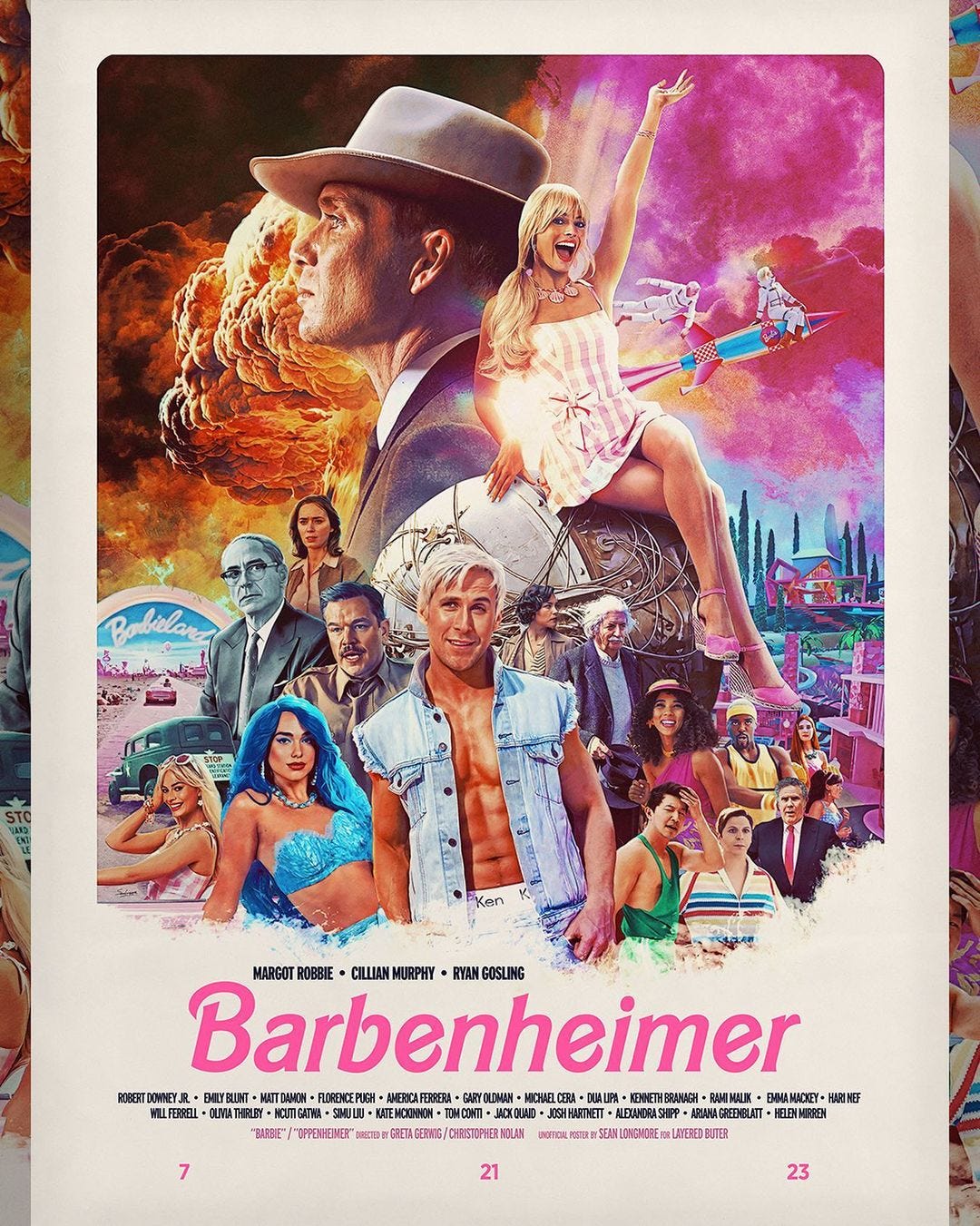Movie review: Barbenheimer
Yes, I'm jumping on the bandwagon, fuck you it's my blog I'll do what I want

Sorry for the radio silence the past few months, I’ve been up to my eyes with my day job and other creative projects. I had no particular interest in seeing either of these movies prior to release, but ended up seeing both of them anyway as social outings. I posted my reviews of both as social media comments, and thought I’d expand on those reviews here just for a little cheap content in between more in-depth posts. I’ll post my reviews in the order in which I saw the two films.




